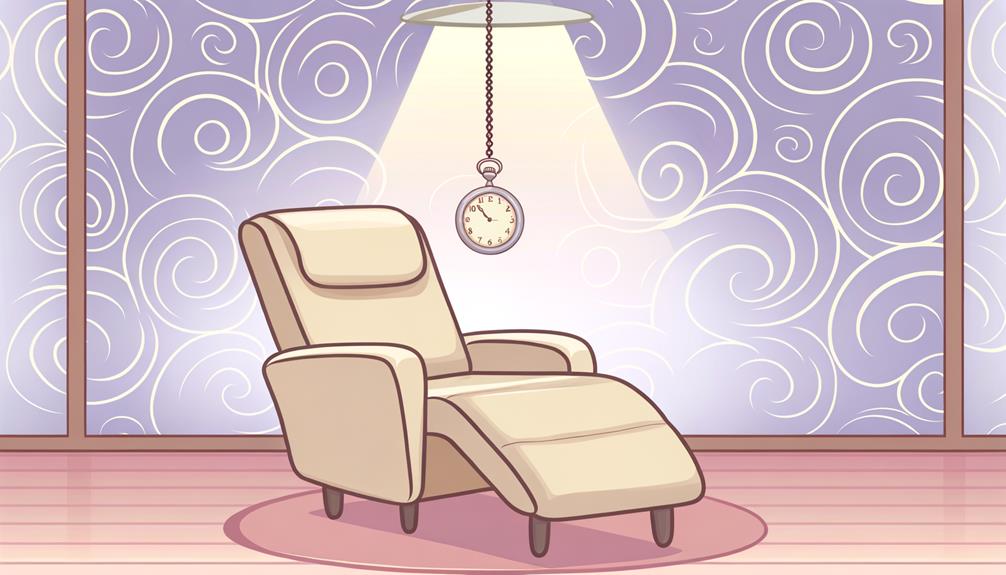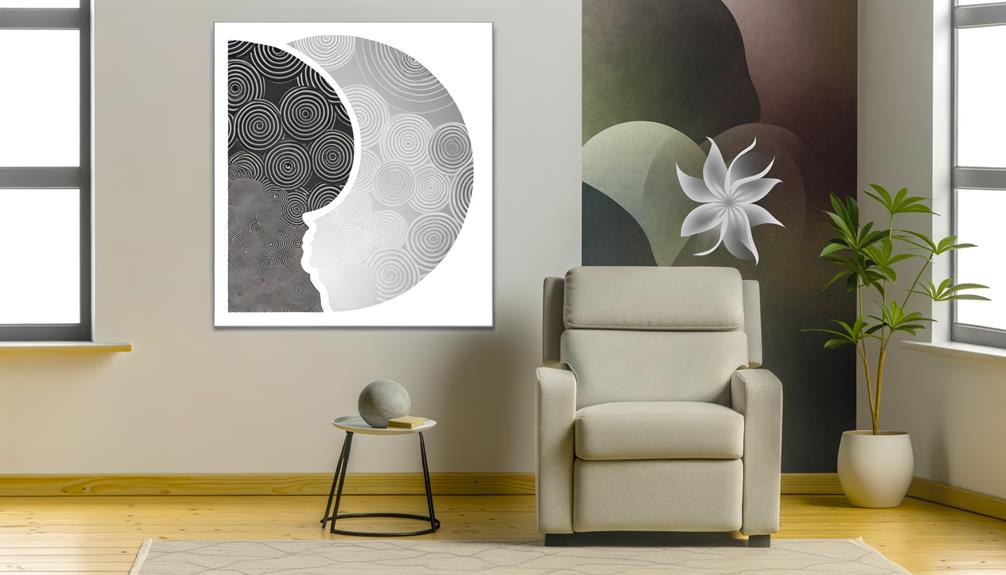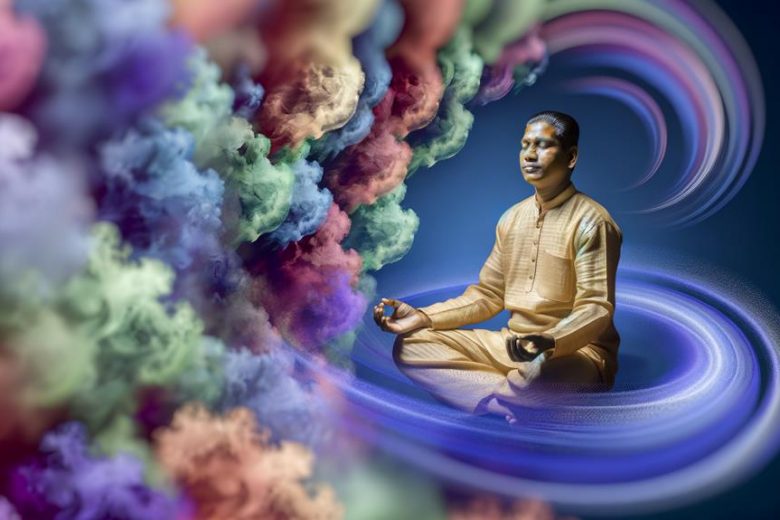You might be wondering if hypnosis can really help with bipolar disorder, especially when traditional treatments like medication and therapy are the go-to options. Hypnotherapy, which involves guided relaxation and cognitive reframing, could potentially aid in emotional regulation and mood stabilization. Integrating it with cognitive-behavioral therapy (CBT) might even enhance treatment outcomes by promoting personal empowerment and early recognition of mood changes. But how exactly does this integrative approach work, and what benefits could you expect? Understanding these aspects could be a pivotal step in improving your quality of life.
Contents
Understanding Bipolar Disorder
Understanding bipolar disorder is vital if you or someone you know is grappling with this condition. Bipolar disorder, a serious mental health condition, is marked by dramatic mood swings that range from euphoric highs (mania) to devastating lows (depression). These mood fluctuations, also known as manic depression, affect around 2.8% of adults in the U.S., making it a relatively common but often misunderstood disorder.
The disorder is classified primarily into two types: Bipolar I and Bipolar II. Bipolar I involves one or more manic episodes, which can be extremely disruptive to daily life. In contrast, Bipolar II is characterized by major depressive episodes and at least one hypomanic episode, which is a less severe form of mania. Recognizing the signs that indicate bipolar disorder is essential for timely intervention. Symptoms can range from changes in energy and activity levels to altered sleep patterns and behaviors, leading to significant impairment in daily functioning.
Accurate diagnosis of bipolar disorder requires a thorough assessment by a healthcare professional. This is particularly important because symptoms can overlap with other mental health conditions, such as ADHD. Misdiagnosis can delay appropriate treatment, exacerbating the condition.
Given the recurrent nature of bipolar disorder, long-term preventive treatment is often necessary. This typically involves a combination of medication and psychotherapy for ideal management. While traditional treatments are effective, some individuals explore alternative therapies, like hypnotherapy for bipolar, to complement their treatment plan. Understanding these aspects of bipolar disorder can help you or a loved one navigate the complexities of this challenging condition and seek the most effective treatment options available.
Hypnotherapy Techniques

Hypnotherapy's ability to assist with bipolar disorder lies in its targeted techniques that can greatly improve emotional regulation. These techniques, including deep breathing, guided relaxation, visualization, suggestion, and cognitive reframing, are tailored to your individual needs and responses. By focusing on these personalized methods, hypnotherapy aims to promote a state of relaxation, which is essential for managing chaotic thoughts and emotions commonly associated with bipolar disorder.
One of the primary hypnotherapy techniques involves relaxation exercises. These can lead to noticeable improvements in mood stabilization in as few as four sessions, although the number of sessions required can vary. During these sessions, you'll likely be guided through deep breathing and visualization exercises designed to calm your mind and body. Visualization, in particular, allows you to create mental images of peaceful settings, which can help mitigate stress and improve emotional regulation.
In addition to in-session techniques, you may be taught self-hypnosis. This empowers you to apply calming strategies on your own, aiding in the effective management of mood fluctuations outside of therapy sessions. Self-hypnosis can be particularly beneficial for maintaining a consistent state of emotional balance.
Moreover, hypnotherapy often integrates with cognitive-behavioral therapy (CBT) and neuro-linguistic programming (NLP). This combination targets both conscious and subconscious thought patterns, enhancing your ability to manage emotions and chaotic thoughts. By addressing these patterns, hypnotherapy supports a holistic approach to mood stabilization and emotional regulation, making it a valuable tool in managing bipolar disorder.
Integrative Treatment Approach

Building on the personalized techniques used in hypnotherapy, an integrative treatment approach for bipolar disorder combines this modality with traditional methods such as medication and cognitive-behavioral therapy (CBT). This combination aims to enhance the overall effectiveness in managing mood swings and emotional regulation. By integrating hypnotherapy, individuals can develop robust coping mechanisms during both manic and depressive episodes, which is essential for mood stabilization.
Hypnotherapy techniques, like guided relaxation and cognitive reframing, are tailored to individual needs, promoting self-awareness. This self-awareness allows you to proactively identify indicators of mood episodes, enabling timely intervention. When combined with CBT, hypnotherapy offers a more thorough understanding of bipolar disorder, assisting you in developing skills that enhance self-control and emotional management.
Medication remains a cornerstone of treatment for bipolar disorder, but its efficacy is often heightened when coupled with hypnotherapy and CBT. These combined approaches not only address the biochemical imbalances but also equip you with practical tools to handle emotional fluctuations. Research suggests that this integrative method fosters better mood stabilization, providing a more balanced and sustainable approach to managing the disorder.
Continuous support and follow-up after hypnotherapy sessions play a significant role in maintaining therapeutic gains. Regular check-ins guarantee that you remain on track and prevent regression in mood stability. This ongoing support is essential for reinforcing the coping mechanisms and self-awareness developed during therapy sessions.
Benefits of Hypnosis

Many individuals find that hypnosis offers considerable benefits in managing bipolar disorder, particularly in promoting emotional regulation and relaxation. Hypnosis can help you develop better coping mechanisms during both depressive and manic episodes. By focusing on emotional regulation, hypnotherapy provides a pathway to stabilize your mood, reducing the intensity and frequency of these disruptive episodes.
Studies suggest that incorporating hypnosis into your treatment plan can improve mood stability and boost self-esteem. One of the key advantages is that it doesn't require deep hypnosis, which means you're less likely to experience adverse reactions that sometimes accompany traditional treatments for mental disorders. This can make hypnosis a safer and more appealing option for managing bipolar disorder.
Integrating hypnotherapy with cognitive-behavioral therapy (CBT) and neuro-linguistic programming (NLP) has shown promising results. This combination can lead to faster improvements in your quality of life by addressing negative thought patterns and promoting positive behavioral changes. It encourages self-discovery and mindfulness, helping you break the cycles and habits that often accompany mood fluctuations.
Preliminary findings also indicate that hypnotherapy can enhance your ability to recognize early warning signs of mood changes. By fostering greater self-awareness, hypnosis enables you to take proactive steps in managing your symptoms, potentially preventing full-blown episodes. This proactive approach can considerably improve your overall mental health and well-being.
Finding a Qualified Therapist

Finding a qualified therapist is vital when considering hypnotherapy for managing bipolar disorder. When you're seeking a qualified hypnotherapist, prioritize those with specific training in mental health, particularly mood disorders. This guarantees they understand the complexities of bipolar disorder and can tailor their approach to your unique needs.
Verify that the hypnotherapist is certified and has extensive hypnosis experience, especially with individuals diagnosed with bipolar disorder. Specialized knowledge can greatly impact treatment effectiveness, providing a more targeted and effective therapeutic experience. Don't hesitate to ask about their credentials and any additional training they may have undergone.
Scheduling an initial consultation is an important step. Use this opportunity to discuss your goals, expectations, and any concerns you might have about hypnotherapy. This meeting can help you gauge the therapist's approach and determine if their methodology aligns with your needs. Inquire about their assessment process, including how they evaluate hypnotic susceptibility and emotional functioning. Their ability to thoroughly assess these factors can provide valuable insights into their treatment strategy.
Researching the therapist's background is equally important. Look for client testimonials and success rates to confirm they have a proven track record of helping individuals with bipolar disorder through hypnotherapy. Client testimonials can offer a glimpse into the therapist's effectiveness and the potential outcomes of your treatment.
Conclusion
In summary, hypnosis can serve as a valuable adjunct to traditional treatments for bipolar disorder. By incorporating guided relaxation and cognitive reframing, individuals may better manage mood fluctuations and enhance emotional regulation. When combined with cognitive-behavioral therapy, hypnotherapy can amplify treatment outcomes, fostering personal empowerment and early recognition of mood changes. Finding a qualified therapist is essential to maximize these benefits, ultimately contributing to an improved quality of life for those affected by bipolar disorder.
